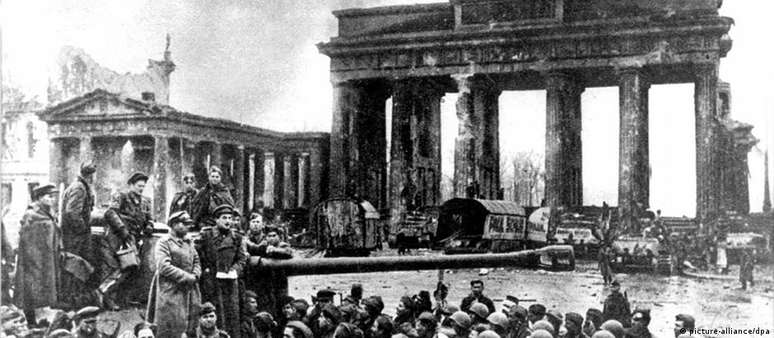On May 8, 1945, the Wehrmacht High Command signed the unconditional surrender of the Third Reich to the Allied forces in Berlin. It was the end of World War II in Europe, five and a half years after it began. simultaneously to the High Command of the Allied Expeditionary Forces of all our Armed Forces on land, water and air, as well as all others currently under German command Signed 8 May 1945 in Berlin. German High Command: Keitel, Friedeburg, Stumpf…”
What the Radio Reich announcer announced in a nutshell on the morning of May 9, 1945 was the end of World War II in Europe. All survivors breathed a sigh of relief. But what the majority – even the Germans – felt as liberation, for others meant shame and affront.
The lightning victories over Poland, France and Norway had blinded the Germans and, above all, the Nazi leadership itself. The attack on the Soviet Union on June 22, 1941, was the result of this delusion of easy military conquests.
“From the headquarters of the Führer, the High Command informs: in defense of the threatening danger coming from the east, the Wehrmacht (the Armed Forces) attacked, at 3 in the morning on June 22nd, the violent march of the enemy troops. A squadron of the Luftwaffe bombed Soviet enemy at dawn”.
Hitler’s optimism
The initial overwhelming successes of Operation Barbarossa (or Barbarossa), the secret name for the German assault on the Soviet Union, also seemed to lead the Reich to another military triumph. On October 3, 1942, as he opened the winter relief, Hitler scoffed at the reactions in the foreign press:
“If we have advanced a thousand kilometers, it cannot exactly be called a failure (…). For example, in recent months – and it is only a few months before war can reasonably be waged in this country – we have advanced as far as river Don, we go down it and finally reach the Volga. We surround Stalingrad and we will take it – you can trust it.”
It was the first time Hitler publicly mentioned the name of the city which, four months later, would turn the tide of war. If at the time many generals believed in the military success of the offensive, at the time of the capitulation of the Sixth Army in Stalingrad there were few optimists still blindly convinced of a victorious end for Hitler’s Germany.
The defeat of German troops in North Africa in the same year and the Allied landing in Normandy in June 1944 reversed the military destiny of the German army.
One day after the unconditional capitulation, the Reich Radio station in the city of Flensburg, where Grand Admiral Dönitz resided, who after Hitler’s suicide was temporarily Reich Chancellor until May 23, broadcast the latest bulletin of the Wehrmacht, praising the heroic resistance of the last battalions at the mouth of the Vistula River:
“Twenty hours and three minutes. Broadcast by the Reich broadcaster Flensburg and its network of affiliates. Today we broadcast the latest bulletin of the Wehrmacht on this war. From the Grand Admiral’s Headquarters on May 9, 1945, the High Command informs That… “
What all the official bulletins of the Armed Forces had always omitted, gradually became clear starting from May 8, 1945. In addition to the monstrous material damage and the irreparable destruction of works of art, the Great War had consumed as many as 55 million lives human lives.
Source: Terra
Rose James is a Gossipify movie and series reviewer known for her in-depth analysis and unique perspective on the latest releases. With a background in film studies, she provides engaging and informative reviews, and keeps readers up to date with industry trends and emerging talents.


![New Day ahead: What awaits you on Tuesday, July 15, July 12, in 12 episodes of 2025 [SPOILERS] New Day ahead: What awaits you on Tuesday, July 15, July 12, in 12 episodes of 2025 [SPOILERS]](https://fr.web.img5.acsta.net/img/79/43/79435021c0bfb8e27ed7d08131107424.jpg)




